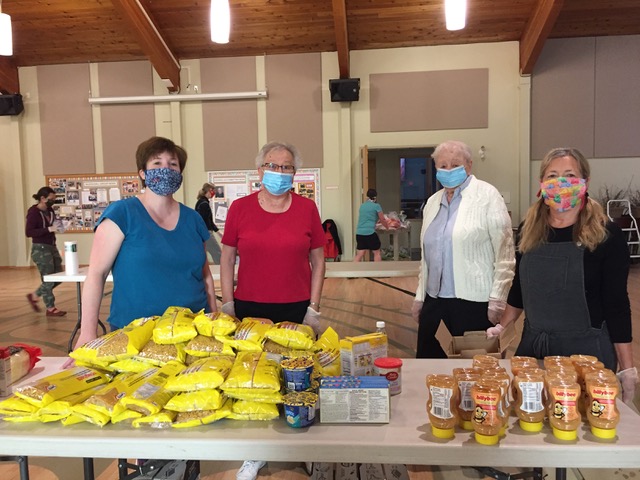Assigned Texts:
- Joshua 24:1-2a, 14-18
- Ephesians 6:10-20
- John 6:51-58
During my seminary years, I did an internship at a nursing home, visiting with residents who otherwise had little or no family coming to visit with them on a regular basis. One such woman was rather elderly but still able to get around the halls with a walker, and she loved to talk. When I visited with her, all I needed to do was ask one question about her life, and she would talk and talk and talk. My problem in visiting with her was that she was often not in her room when I showed up. You see, she had a mission. Her mission was to visit the other residents on her hall to try and brighten up their day. This woman had a very close and enduring relationship with the Lord. She attended the chapel services provided by the chaplain and did her devotions each day. She wanted to be fed spiritually, and she knew where to go to be fed. She also wanted to share the joy of her faith with others.
This week we conclude our 5-week journey through John’s 6th chapter, which has had us pondering about physical and spiritual food. In this final pericope, some of Jesus’ followers are complaining about the concept of eating Jesus’ flesh and drinking his blood. But let’s agree that it does sound a bit grizzly to be talking about eating the flesh and drinking the blood of Jesus as he seems to be offering. “Those who eat my flesh and drink my blood abide in me, and I in them.”
So, what does it mean to consume of such? How do we get this bread and wine? Can we buy it at the grocery store? Or is there something deeper here? Must we attend a feeding of the 5000 type of event? What is at stake here is that it invites full relationship and participation in the life-giving power of Jesus. This is more than seeing the sacrament as a remembering; it is a deep and abiding relationship that will profoundly impact every facet of our lives. It is an enmeshing of Jesus into our souls, and therefore into our lives.
Think of the meals that Jesus hosts: the feeding of the 5000, the upper room, and breakfast on a beach. Each of these is a chance to dine with Jesus, to accept his gracious gift of sustenance. How often do we accept that invitation to come and eat? But life is more than finding calories to stay alive, as easy as that is in North America. Life is about finding a deeper spiritual food that gives meaning to the life that we live. That is what my friend at the nursing home had discovered. She had the option of shrinking away in her room watching TV, but she chose to be out helping others.
The bottom line of the story is that Jesus seeks to meet the needs of the people who come to learn from him. He saw that they were hungry and did what was necessary to meet that need. The truth of the matter is that Jesus does the same for us today, and for that, we must be thankful. The question that we must ask ourselves is, for what are we hungry?
Today, much of the world is hungry for the wrong thing, and we don’t even know it. In his numerous letters, Paul spoke of the division between the things of the world and the things of heaven. This world is self-centered, self-serving, concerned most of all with self-gain. The kingdom of God is based on mutual well-being and the spiritual and emotional fulfillment of all people.
If we can get beyond the distractions of life, I think that we all hunger for meaning in life. We hunger to know that what we are doing helps others. When we accept the challenge of trying to see the world through the eyes of Christ, we can begin to see that our lives have more meaning when we go and meet the needs of others. And to do so not out of a sense of obligation but out of sheer joy.
Christ can meet our every hunger if we truly accept the gift of his freely given grace and by following his example in the living of our lives. What are you hungry for? Where are you going to be fed?
On August 21, 1732, the first missionaries left the small Moravian community of Herrnhut, Germany, bound for the island of St. Thomas to bring the presence of Jesus into the lives of the slaves who worked on the sugar plantations there. We celebrate God’s guidance as we remember the sacrifices made in establishing this mission, the successes it was able to accomplish and ask forgiveness for the mistakes made. May God bless us all as we seek to make the love of God real in our world today.







